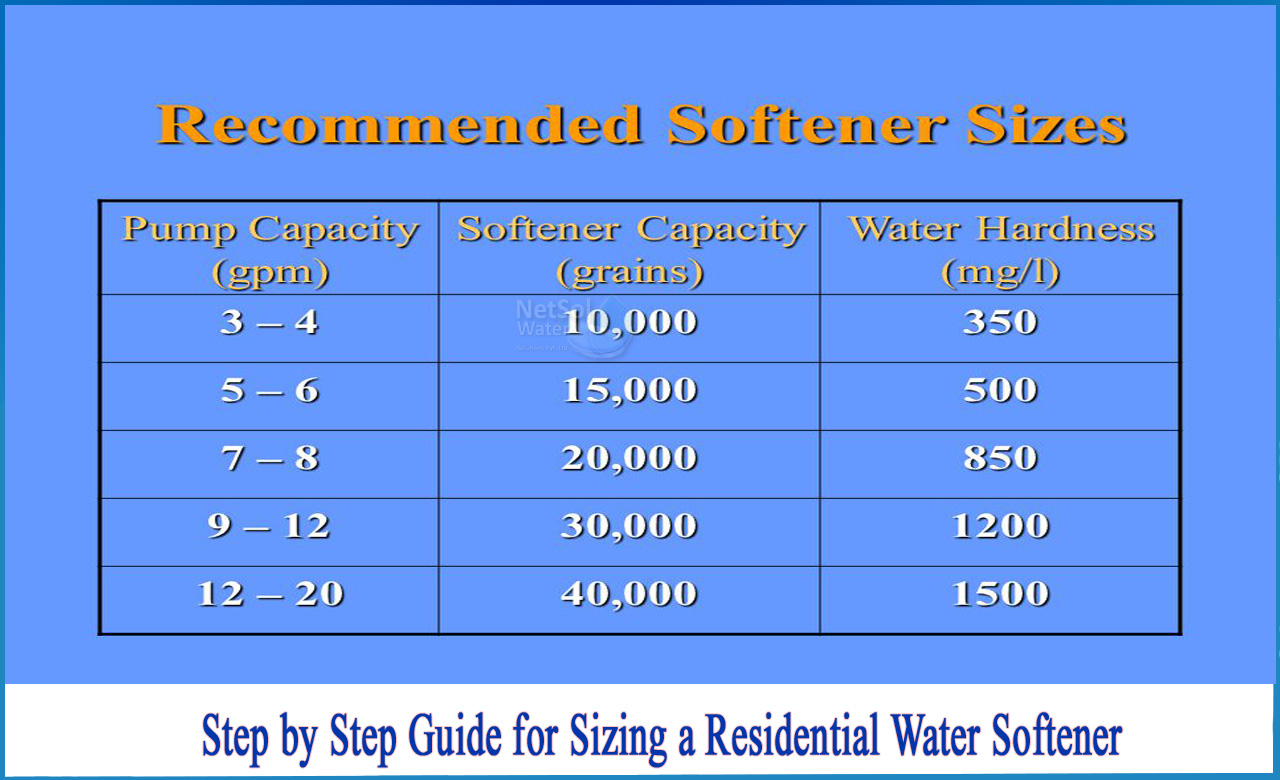Water softener sizing tools may be found all over the internet to assist users in selecting the appropriate softening size. Unfortunately, the vast majority of these calculators do not account for water softener efficiency.As a result, many people choose a softener that appears to be the right size but consumes a lot of salt (typically more than 2000 pounds per year) instead of a properly sized, efficient one that uses 300 pounds per year.
What causes this to happen?
Simply said, many dealers, both online and in-store, are unfamiliar with the notion of softener salt efficiency and do not account for it in their size calculations.
Why should I be concerned with efficiency?
Your water softener's efficiency determines how much salt you'll need to buy, how much salt you'll have to transport, and how much salt will be dumped into the environment. When you size a softener and consider its salt efficiency, you'll get a softener that not only never runs out of soft water, but also uses the least amount of salt. This equates to significant cost savings and simplicity of ownership during the life of the water softener.
How to Choose the Right Water Softener Size?
The key to properly sizing a water softener is to match your individual water quality and water demand to a system that is large enough to reduce salt use while maximising soft water capacity.Calculate your "daily softening need" as the first step in appropriately sizing your softener. This is merely a figure that indicates how much hardness your softener will have to remove on a daily basis. Your daily softening needs are determined based on your water hardness and water use.
1-Hardness level of the water:
The amount of calcium and magnesium dissolved in your water is measured here. This information will be presented in mg/L (milligrams per litre) or GPG (grams per gramme) depending on where a water test is performed (grains per gallon). Water hardness is measured in grains per gallon, which is the industry standard. When you divide mg/L by 17.1, you get GPG. Water hardness is measured in "grains," which are equal to 1/7000th of a pound.
When considering the purchase of a softener, it's critical to determine your water hardness. If you guess at this figure, you'll end up with an undersized system. Your softener will also ask for the hardness value when it comes time to programme it. You'll have to test for hardness if you're on your own. If you have city water, your local water utility can typically tell you how hard it is. Their yearly reports are frequently available online. The hardness value must be modified when iron is present in the water.
2-The Use of Water
Your household's water use is the second component utilised to calculate the daily softening required. Looking at a water bill that indicates total consumption over a specific period of time - generally a month - is the most accurate approach to calculate this. You can use this data to estimate how much water your household uses on a daily basis. If you don't know, multiply the number of persons in your home by 75 gallons each day. This will give you an estimate of how much water you use on a daily basis.
3-Now figure out how much softening you'll need on a daily basis using above two factors
Multiply your daily water consumption by the hardness of your water (corrected for iron). This is your Softening Requirement for the Day. Here's an illustration:
Hardness: 20 grains per gallon.
Daily Water Use: 4 People X 75 Gallons per day = 300 gallons per day.
Daily Softening Requirement = 20 grains per gallon X 300 gallons per day = 6000 grains per day.
In the example above, the softener will be removing 6000 grains per day. A softener is usually sized to regenerate about once per week.
4-Choosing the Right Softener for Your Situation
You've calculated how much softening is necessary per day based on your local conditions and water usage. Water softeners are typically sized so that they regenerate once a week or less.
Why is it only once a week?
A once-week regeneration strikes a decent compromise between keeping the resin bed fresh and preventing the valve from suffering excessive wear and tear. Moving parts are present in a water softener valve, however they only move when the softener is renewing. Regenerating once a week also saves water. When a water softener regenerates, it requires around 50 gallons of water.If we double the Daily Softening Requirement of 6000 grains each day by seven days, we'll need a softener that can soften 42,000 grains of total hardness once a week to renew.
So, what size water softener has a total softening capacity of 42,000 grains? This is where a lot of false information on the internet and elsewhere might disguise the true answer.
If all of this sounds too hard for you to figure out on your own, call a Netsolwater treatment consultant who is familiar with the water qualities in your area of Noida. They should be able to not only evaluate your water hardness, but also give you with the best solution for your specific needs.
Netsol Water is Greater Noida-based leading water & wastewater treatment plant manufacturer. We are industry's most demanding company based on client review and work quality. We are known as best commercial RO plant manufacturer, industrial RO plant manufacturer, sewage treatment plant manufacturer, Water Softener Plant Manufacturers and effluent treatment plant manufacturers. Apart from this 24x7 customer support is our USP. Call on +91-9650608473, or write us at enquiry@netsolwater.com for any support, inquiry or product-purchase related query.



